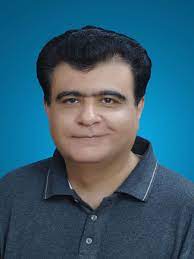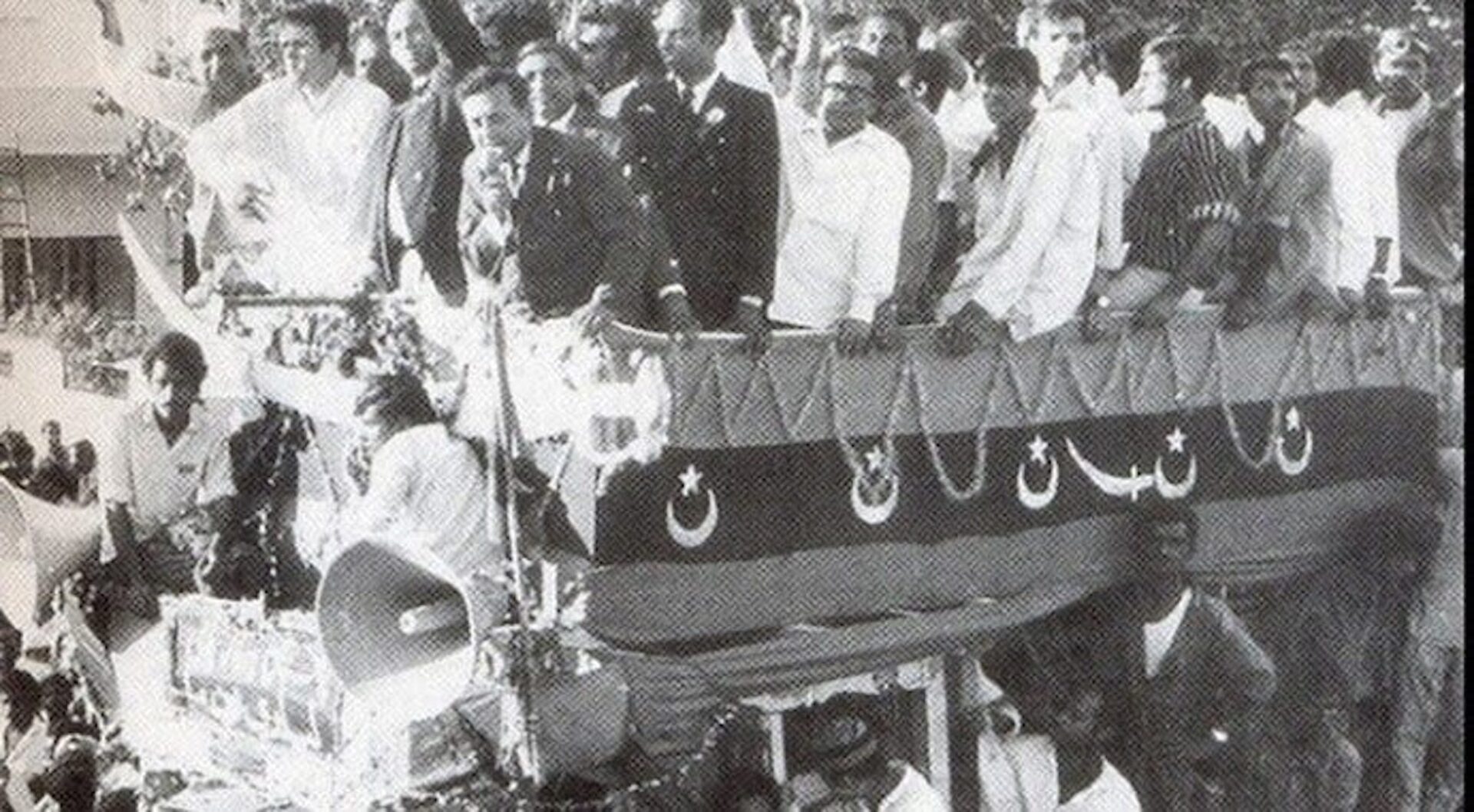This article is part of Dissent Today’s special series on Pakistan’s general elections. Follow the series here.
With Pakistan’s general elections just three days away, the powerful military establishment’s unconstitutional interference is casting a dark shadow over the process and undermining its legitimacy. A review of Pakistan’s electoral history unfortunately shows a recurrence of such rigging, with hardly any of our national elections being fully free and fair. Pakistan has spent over a decade under direct army rule in this mode (1.5 years under Ayub Khan, 2.5 years under Yahya Khan, eight years under Zia ul Haq, and three years under Pervez Musharraf). Even when national elections were subsequently held, they were usually rigged in one way or another.
Pakistan’s first National Assembly was formed following the partition in 1947 that divided the all-India assembly created after the 1946 elections. Members of the National Assembly were elected indirectly by the provincial assemblies. However, Liaquat Ali Khan was not elected as the Prime Minister by the assembly but was appointed to the position by Muhammad Ali Jinnah, who was serving as the President of the Muslim League at the time. Subsequently, Liaquat Ali urged the UK government to appoint Jinnah as the Governor-General.
Assuming that it was following a five-year term, fresh National Assembly elections should have been held by 1951-52, but they were postponed while several Prime Ministers were illegally appointed and fired by an unelected Governor-General. Even that post was filled by appointment rather than elections within assemblies. A second national assembly was elected in 1955 but indirectly, with the provincial assemblies (some of them emerging from rigged elections) serving as the electoral college rather than direct elections based on universal adult franchise.
Several provincial assemblies were dissolved questionably by the Governor-General.
This facade was finally dismantled after the 1958 Martial Law. However, the pressure to establish electoral legitimacy quickly arose, prompting him to introduce his Basic Democracy system, in which 80,000 local legislators were elected through direct elections. Instead of utilizing universal adult franchise for direct elections, he chose to have himself elected as President in a referendum in which these local legislators acted as the electoral college in 1960 for a five-year term.
In 1965, he repeated this exercise with the only change being that Presidential elections included a competitor, Fatima Jinnah. However, the electoral college still consisted of only local legislators. Similarly, elections to the National Assembly in 1962 and 1965 also utilized the same electoral college. In short, no direct national elections were held based on universal franchise for the National Assembly or President/Governor-Generals.
Prime Ministers were typically appointed and dismissed by the Governor-Generals during the first two decades after 1947.
During this era, election delays, manipulation of the electoral college, and dubious appointments and removals of Prime Ministers and Heads of State were the main methods of election rigging.
The main motivation for rigging during this era was the fear held by West Pakistani elites of the numerical majority of Bengalis. The 1970 elections, which featured universal adult franchise, marked the end of this era of indirect elections. These elections are widely recognized as Pakistan’s most fair elections in terms of pre-election and election-day processes. However, their legitimacy was compromised when power was not transferred to the Awami League at the post-election stage, confirming the West Pakistan elite’s worries about a Bengali majority.
The 15 national parliamentary elections that have taken place in Pakistan so far did not fare much better. As mentioned earlier, the first four, held between 1946 and 1965, were all based on indirect elections by provincial or local legislators. In 1970, power was not handed over to the winner. The 1977 election, the only national parliamentary one to be held under an incumbent elected civilian government (PPP), was marred by serious rigging charges such as candidate intimidation, vote stuffing, and media censorship.
While detailed reviews by neutral election observers are not available for these elections, it is generally believed that they increased PPP’s victory margin from a majority to a supermajority. The 1985 elections were held without party representation under army rule, with PPP’s main leaders either in jail or exile, and were highly rigged. The 1988 elections were partially fair, although PPP’s victory margin was likely reduced by selective rigging by the establishment.
However, the elections in 1990, 1993, and 1997 are generally considered rigged. Of the seven elections held from 1970 to 1999, six were rigged to the extent of changing the final victor, while one was partially rigged (1988). Only one of the assemblies (1972-77) completed its term, whereas the other six were dubiously removed through martial law (1977 and 1997) or Presidential dismissals.
The next phase of elections resumed in 2002 after three years of direct army rule and four more parliamentary elections were held, with European Union election observation reports available for each. The reports suggest that the establishment rigging changed the final winner in 2002 and 2018, as well as reduced the PPP’s victory margin in 2008. There is no hint of deliberate rigging in the 2013 elections, although the PPP, ANP, and other centrist parties did not have a level playing field as they were targeted by Taliban
terrorism, which reduced their victory margin without changing the overall winner (PML-N).
Out of the fifteen Presidential and national parliamentary polls held through direct voting since 1947, eleven have been rigged to the extent of changing the final outcome, two were rigged to reduce the victor’s margin (in 1988 and 2008), one was rigged to enhance the victor’s margin (in 1977), and only one was free of deliberate rigging by the establishment or contestants which was in 2013. This marked the only free and fair civilian transfer of power from one fairly elected party to another in our history.
In short, 13 elections were rigged by the establishment and only one by civilians (1977) and that regime lasted only a few months.
The 1970 polls are widely recognized as Pakistan’s fairest elections in terms of pre-election and election-day processes. However, their legitimacy was compromised when power was not transferred to the Awami League.
The 2024 elections
All the telltale signs of rigging present in past parliamentary elections are already visible now before the 2024 elections. This includes the dismissal of the PTI government in a tussle with the establishment in April 2022, and subsequent institution of dubious cases against its top leadership and their arrest without convictions for a long time (Imran Khan, Shah Mahmood and Pervez Elahi). Imran Khan was recently convicted in three dubious cases in a week for a total of 21 years of incarceration through secretive in-prison trials, just days before the elections.
There have been forced or induced desertions by Asad Umar and hundreds of other middle-cadre PTI leaders and workers, often after their incarceration and disappearance and subsequent release. There are media gags and obstructions in the way of the party’s free electioneering reported regularly by media and on social media. In a first, PTI has even been deprived of its election symbol, which may open the doors for forced desertion of its independently running candidates to other parties.
The 2024 elections appear to be more rigged than those held in 2018 and the 1990s, and on par with the 2002 and 1985 elections held under army rule. The establishment has perfected its rigging techniques to the point where it can manipulate elections even under a constitutional rule. In the past, Pakistan was able to get away with significant rigging due to its status as a key US ally during the wars in Afghanistan. It remains to be seen whether western states will tolerate the same level of rigging now that Pakistan is not a key ally.
Recent opinion surveys show that PML-N is gaining ground, which seems odd given the poor economic situation during its recent rule. It also appears that PTI’s fall in such survey is linked to the crackdown on the party, which is forcing electables and voter blocs to switch their loyalties. However, these surveys suggest that we will see a rigged, weak, and inept PML-N coalition coming to power. Such a coalition will lack the legitimacy needed to tackle Pakistan’s multifaceted, colossal issues in governance, and will be subservient to the establishment, whose rigging will help it come to power.
Pakistan’s social, economic, foreign, and security failures are inevitably linked to its political failures. These political failures are undoubtedly connected to the problem of political illegitimacy due to rampant election delays and rigging. The 2024 elections seem to perpetuate that cycle of political illegitimacy and massive problems in all other domains. For this sorry state, the blame mostly lies with the security establishment.

The writer is an Islamabad-based Political Economist with a Ph.D. From the University of
California, Berkeley. He can be reached at murtazaniaz@yahoo.com. X:@NiazMurtaza2.

